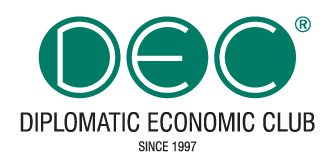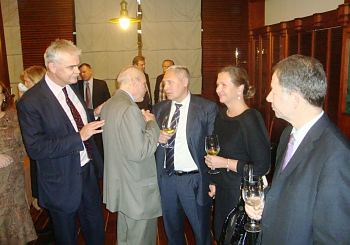Additional means to stimulate growth and employment
The development of electronic commerce and online services offers enormous potential for beneficial economic, social and societal change. The Internet economy creates 2,6 jobs for every «off-line» job lost, and offers a better choice to consumers, including those in rural and isolated areas. The gains brought by lower online prices and a wider choice of available products and services are estimated at ? 11,7 billion, equivalent to 0.12 % of EU-27 GDP.
The Commission acknowledged that if 15 % of retail sales were e-commerce and the obstacles to the internal market were removed, the gains for consumers might be as much as ? 204 billion, or 1.7 % of European GDP.
The European Commission finds, however, that there are many obstacles preventing consumers and businesses from investing fully in online services: ignorance or uncertainty about the applicable rules, offers that lack transparency and are hard to compare, and payments and modes of delivery that are often expensive and unsuitable.
Part of Single Market PlanThe European Council intends to submit a roadmap for the completion of the Digital Single Market by 2012. As part of the Digital Agenda and the Single Market Act the e-commerce is to play a responsible role.
The Commission adopted a Communication in January 2012 presenting 16 targeted initiatives aimed at doubling the share of e-commerce in retail sales (currently 3,4 %) and that of the Internet sector in European GDP (currently less than 3 %) by 2015. By that year online trade and services could account for more than 20 % of growth and net job creation in some member states (such as France, Germany, the United Kingdom and Sweden).
Statistics see: „Internet matters, the net’s sweeping impact on growth, jobs, and prosperity“, McKinsey Global Institute, May 2011, and „The internet’s impact on the French economy“, McKinsey, March 2011.
Under the Single Market Act and the Digital Agenda, the Communication puts forward an action plan which will facilitate cross-border access to online products and content, ultimately solve the problems of payment, delivery and consumer protection and information, and assist dispute resolution and the removal of illegal content, thus helping to develop an Internet that is more secure and more respectful of fundamental rights and freedoms. The aim is to create an environment more likely to foster a dynamic Digital Single Market by tackling the problems in its path, while promoting investment in wireless connectivity and new-generation fixed infrastructure and supporting the development of cloud computing.
A dozen-year’ old Directive would need to be changed facing consumers’ wishes and interests. According to newest pool data carried by the Commission, some 60 per cent feel safe dealing with e-commerce, while about 40 per cent are still quite dubious.
The Communication identifies the potential of electronic commerce and online services to account for up to 20 % of employment and growth over the next five years. Access to goods and services will also be made easier for geographically isolated or vulnerable people, fostering cohesion across Europe.
The Communication goes on to list the obstacles to the development of the Internet economy: a legal cross-border supply shortage, inadequate information and protection for consumers, inefficient deliveries and payments, illegal content that is still too difficult to manage, and the dangers of the spread of cybercrime.
Commission’s opinionMichel Barnier, Commissioner for the Internal Market, Neelie Kroes, Commission Vice-President responsible for the Digital Agenda, and John Dalli, Commissioner for Consumer Policy, expressed their ambitious objective in the following terms:
„In the difficult circumstances facing Europe we must seize every source of activity and new jobs as a matter of urgency. The action plan presented in Brussels on 11 January 2012 would create new opportunities for citizens and businesses and intended to bring Europe much-needed growth and employment. The plan aims to remove the obstacles which until now have frustrated the development of Europe’s internet economy."
BackgroundConsumers often lack confidence in online trade or services and are concerned about whether their rights will be respected, especially when a problem arises. They are also often frustrated that certain services are not offered in their country or that they cannot buy in other Member States because, for instance, there are no deliveries to their country or foreign payment cards are not accepted. Lastly, they are sometimes deprived of access to broadband networks and faced with a rise in cybercrime.
The Electronic Commerce Directive (2000/31/EC) sets out rules which facilitate the provision of online services in the European Union and ensure that these services meet certain criteria. The Directive laid the foundations for cross-border online services. Because it is technologically neutral, it was recognised by the interested parties at the public consultation (2010) as the cornerstone of the Digital Single Market. The ultimate aim, said the Commission, is therefore to add to the Single Market potentials and not to amend them.
The Directive requires online service providers generally to observe the rules of the country in which they are established, and contains provisions on consumer protection. It requires service providers to indicate, for example, their contact details on their websites, guarantees that advertising is easily identifiable as such, and protects against spam. Under certain conditions the Directive also grants liability exemptions to intermediary providers if they host or transmit illegal content placed online by a third party.
However, according to newest pool data carried by the Commission, some 60 per cent feel safe dealing with e-commerce, while about 40 per cent are still quite dubious.
Eugene Eteris Baltic-course.com










